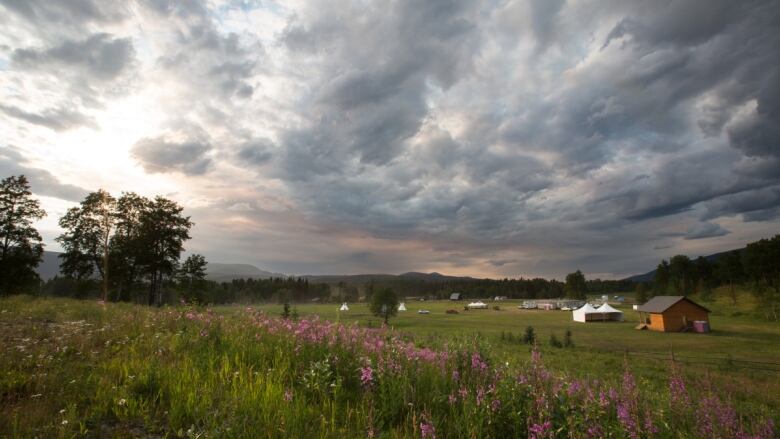Province reaches deal with Blueberry River First Nations on natural resource development
Historic agreement comes after 2021 court ruling reinforced rights of nation in northeastern B.C.

A First Nation in B.C.'s northeastern regionhas reached an agreement with the provinceto protect wildlife, forest and land resources and share revenue from oil and gas development.
The deal comes following a 2021 court ruling, which found the provincial governmentinfringed on Blueberry River First Nations' Treaty 8 rights because the province allowed development including forestry and natural gas development without the community's approval.
The court heard more than 84 per cent of the nation's territory is within 500 metres of an industrial disturbance.
B.C. Premier David Eby announced the agreement at a news conference held with the Blueberry River First Nationsat the Prince George Native Friendship Centre on Wednesday afternoon.
Blueberry River First Nations Chief Judy Desjarlais said the deal provides "a clear pathway to get the hard work started on healing and restoring the land."
She said there would be more joint planning to protect ecosystems, wildlife habitat, and old forests.
Almost two years ago, following a long court battle, B.C. Supreme Court justice Emily Burke agreed with the Blueberry River First Nations that the constant approval of new energy projects in B.C.'s northeastern region breachedtreaty rights meant to protect the nation's way of life.
Desjarlais said the agreement signifies a new approach for government and business to work alongside First Nations.
"For a long time, First Nations were put aside, not engaged with or listen to," she said.
"Today marks a new direction. First Nations will be participants in all stages of development. Blueberry now has a say every step of the way."
'Negotiationrather than litigation'
Premier David Ebysaid the agreementis a way to move ahead. He saidit creates momentum for future land use planning agreements and is animportant precedent in the province.
"I've always believed that negotiation, rather than litigation, is the way forward for achieving reconciliation and strengthening vital government to government relationships," said Eby.
Under the new agreement, the province has agreed to establish a $200 million restoration fund by June 2025 to support "healing of the land from decades of industrial disturbance."
The province is looking to the federal government, private companies and other organizations to help provide some of that money.
Also, the two sides will spend the next three years creating multiple watershed management plans for all natural resource sector activities in areas considered a priority to the nation.
The plans will investigate the amount ofold-growth forest in the nation. The province says as part of the deal, new areas could be protected from new industrial activities and possibly labelled "Indigenous Protected and Conserved Areas."
There will also be limits on new oil and gas development projects, according to the province, and the Blueberry River First Nations will receive $87.5 millionover three years as part of a revenue sharing agreement.
The agreement deals with Blueberry River First Nations' claim area but does not address the claims of other Treaty 8 First Nations in the territory.
with files from Canadian Press












_(720p).jpg)


 OFFICIAL HD MUSIC VIDEO.jpg)
.jpg)



























































































